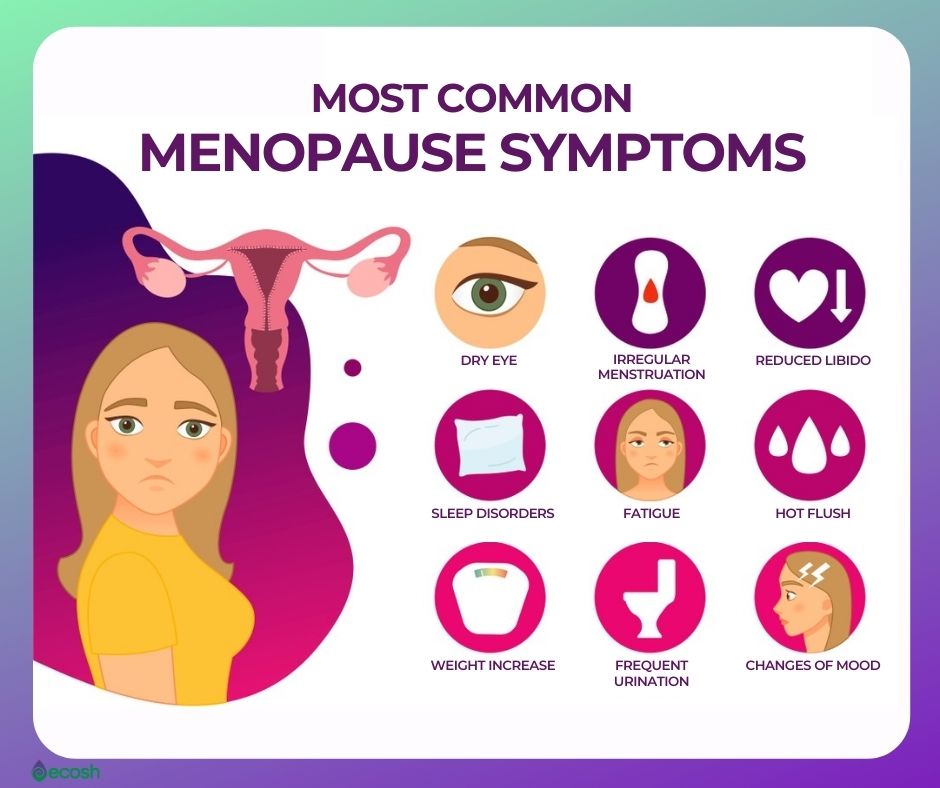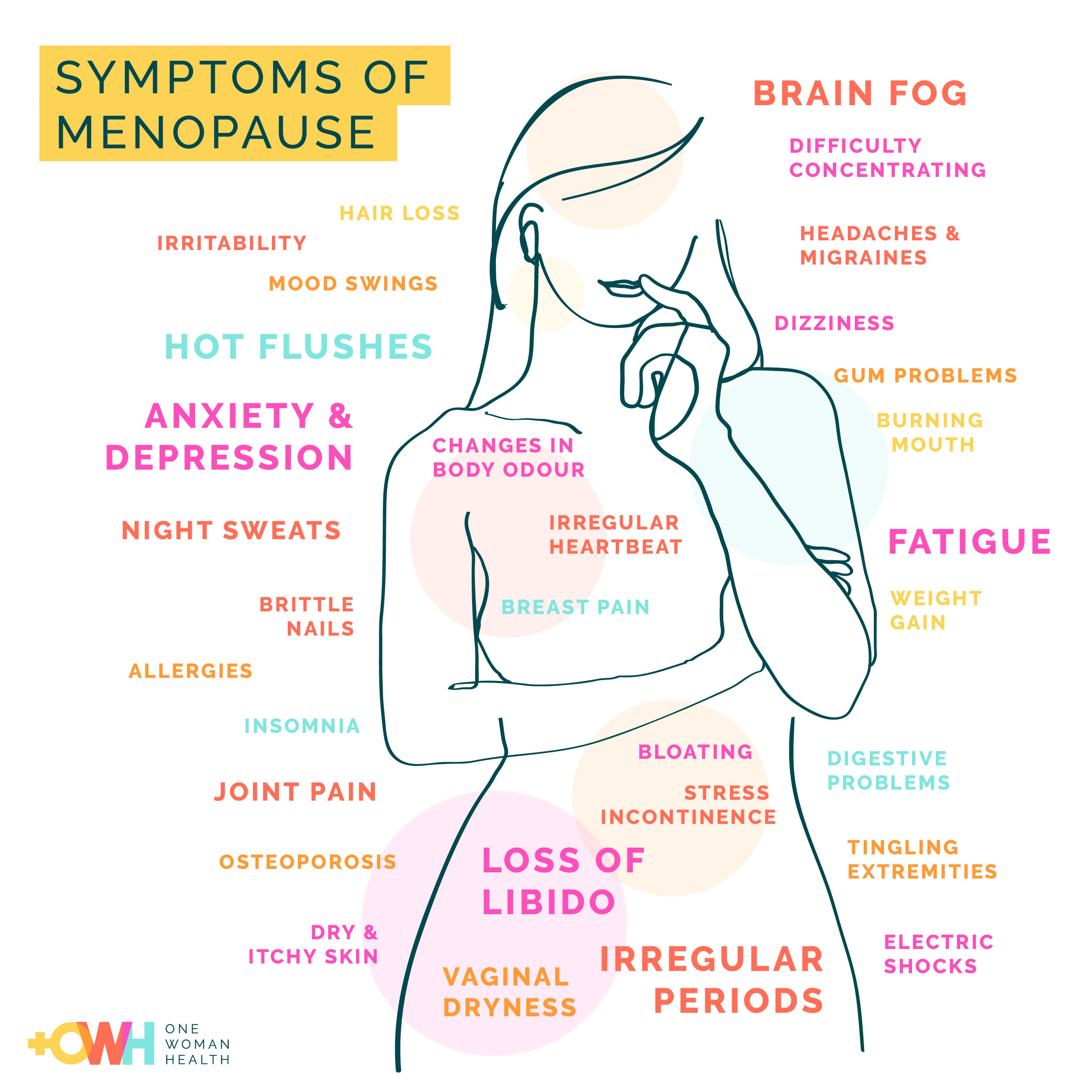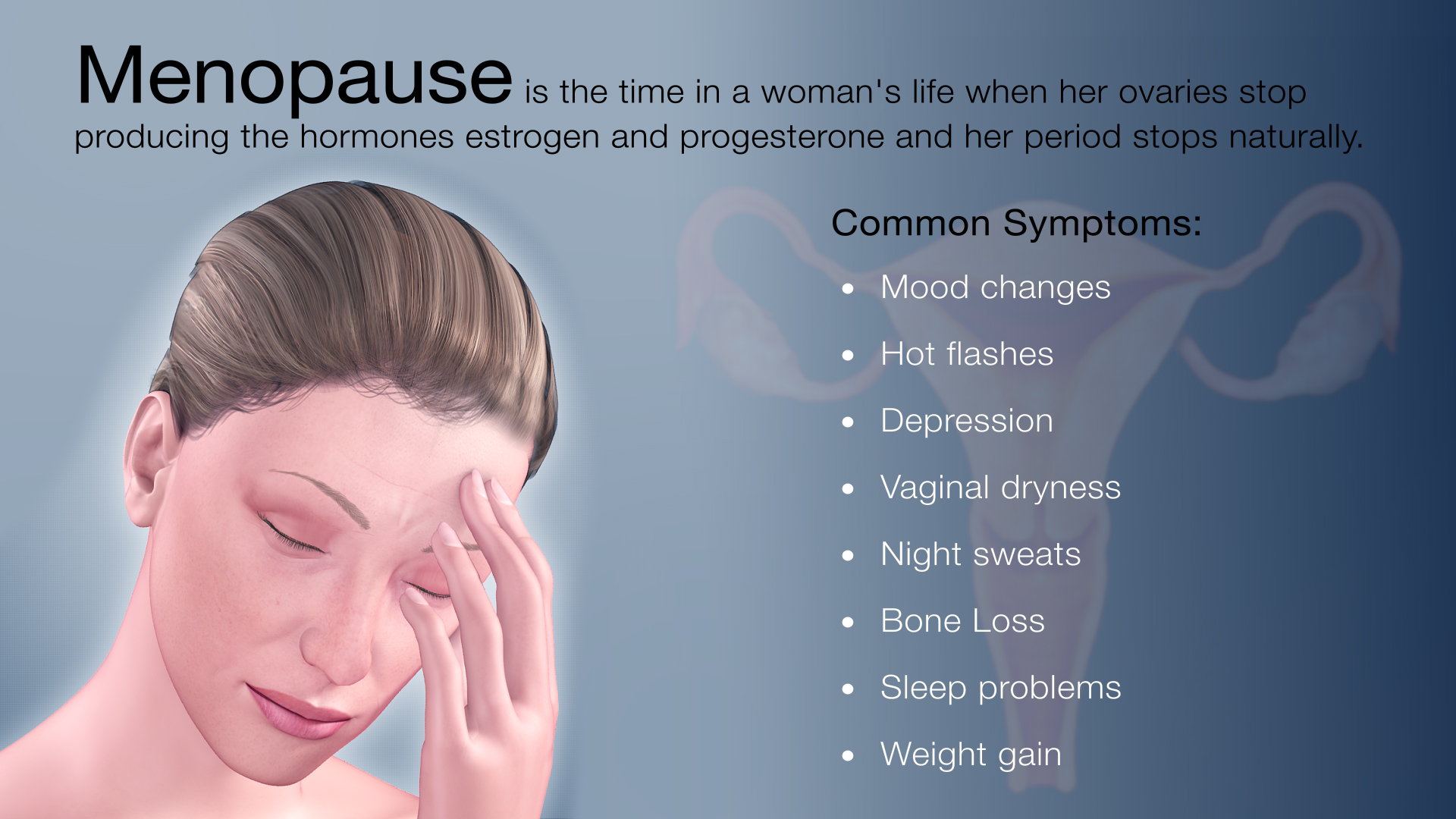Menopause, a natural transition in a woman’s life, is characterized by hormonal shifts and a decline in reproductive function. Understanding the causes of menopause can empower women to navigate this phase with knowledge and support. This article delves into the physiological, environmental, and lifestyle factors that contribute to menopause.
From the hormonal changes within the body to the impact of external influences, this comprehensive guide unravels the intricate factors that shape the onset and experience of menopause.
Physiological Causes of Menopause

Menopause is a natural biological process that marks the end of a woman’s reproductive years. It is characterized by a decline in the production of estrogen and progesterone, the hormones that regulate the menstrual cycle. This decline in hormone levels leads to a number of physiological changes, including the cessation of menstruation, hot flashes, and vaginal dryness.
Hormonal Changes during Menopause
The hormonal changes that occur during menopause are complex and involve a number of different hormones. The most significant changes occur in the levels of estrogen and progesterone, but other hormones, such as follicle-stimulating hormone (FSH) and luteinizing hormone (LH), are also affected.
| Hormone | Function | Changes during Menopause |
|---|---|---|
| Estrogen | Regulates the menstrual cycle, bone density, and cholesterol levels | Levels decline significantly during menopause |
| Progesterone | Prepares the uterus for pregnancy and regulates the menstrual cycle | Levels decline significantly during menopause |
| FSH | Stimulates the ovaries to produce eggs | Levels increase during menopause |
| LH | Triggers ovulation | Levels increase during menopause |
Role of the Ovaries in Menopause
The ovaries are the primary organs responsible for producing estrogen and progesterone. As a woman approaches menopause, the ovaries begin to produce less of these hormones. This decline in hormone production eventually leads to the cessation of menstruation and the other symptoms of menopause.
Environmental Factors Contributing to Menopause

In addition to physiological causes, environmental factors can also play a role in the onset of menopause. Exposure to certain chemicals and radiation can disrupt hormone production and affect reproductive health, potentially leading to earlier menopause.
Chemical Exposure, Causes of menopause
Certain chemicals, known as endocrine disruptors, can interfere with the body’s hormone balance. These chemicals mimic or block the effects of natural hormones, including estrogen, which is essential for reproductive function. Exposure to endocrine disruptors has been linked to earlier menopause and other reproductive issues.
- Pesticides:Studies have found that exposure to certain pesticides, such as DDT and dichlorodiphenyltrichloroethane (DDT), can disrupt hormone production and lead to earlier menopause.
- Bisphenol A (BPA):BPA is a chemical commonly used in plastic products. Exposure to BPA has been associated with an increased risk of early menopause and other reproductive problems.
Radiation Exposure
Radiation, both ionizing and non-ionizing, can damage the ovaries and affect hormone production. Exposure to radiation can occur through medical procedures, such as X-rays and CT scans, or through occupational exposure.
- Medical Radiation:Studies have shown that women who have undergone multiple pelvic X-rays or CT scans have an increased risk of early menopause.
- Occupational Radiation:Women who work in occupations that involve exposure to radiation, such as nuclear power plant workers or medical technicians, may have an increased risk of menopause before the age of 40.
Lifestyle Choices and Menopause
Lifestyle choices can significantly impact the timing and severity of menopausal symptoms. Understanding the role of factors such as smoking, alcohol consumption, and exercise can help women make informed decisions to manage their menopausal transition.
Smoking has been linked to earlier menopause and more severe symptoms. Nicotine constricts blood vessels, reducing blood flow to the ovaries and affecting hormone production. Additionally, smoking damages DNA, which may accelerate ovarian aging.
Alcohol Consumption
Excessive alcohol consumption can disrupt hormone balance and contribute to earlier menopause. Alcohol interferes with the production of estrogen and progesterone, which can lead to irregular menstrual cycles and premature ovarian failure.
Exercise
Regular exercise has been shown to have beneficial effects on menopausal symptoms. Exercise helps maintain a healthy weight, which can reduce the risk of certain menopausal symptoms, such as hot flashes and night sweats. Additionally, exercise promotes the release of endorphins, which have mood-boosting effects and can help manage stress levels.
By adopting healthy lifestyle choices, women can potentially mitigate the severity of menopausal symptoms and improve their overall well-being during this transition.
Medical Conditions and Menopause
Menopause is a natural process that typically occurs between the ages of 45 and 55. However, certain medical conditions can cause premature or early menopause, which is defined as menopause that occurs before the age of 40. These conditions can affect ovarian function and lead to a decline in hormone production, resulting in menopausal symptoms such as hot flashes, night sweats, and vaginal dryness.
Medical Conditions Associated with Premature Menopause
* Autoimmune diseases:Conditions such as lupus, rheumatoid arthritis, and thyroid disease can damage the ovaries and lead to premature menopause.
Cancer treatments
Chemotherapy and radiation therapy for cancer can damage the ovaries and cause premature menopause.
Genetic disorders
Certain genetic conditions, such as Turner syndrome and fragile X syndrome, can lead to premature menopause.
Infections
Some infections, such as mumps and chickenpox, can cause inflammation in the ovaries and lead to premature menopause.
Surgery
Removal of both ovaries (oophorectomy) during a hysterectomy or other surgical procedure will result in immediate menopause.
Surgical and Medical Interventions for Menopause

Surgical and medical interventions can induce menopause or manage its symptoms. These include surgical procedures like hysterectomy and oophorectomy, as well as hormone replacement therapy (HRT) and alternative therapies.
Surgical Procedures
Hysterectomy, the surgical removal of the uterus, and oophorectomy, the removal of one or both ovaries, can induce menopause by eliminating the production of estrogen and progesterone. These procedures are typically performed to treat conditions like uterine fibroids, endometriosis, or cancer.
Hormone Replacement Therapy (HRT)
HRT involves taking synthetic hormones to replace the declining levels of estrogen and progesterone during menopause. It can effectively alleviate menopausal symptoms such as hot flashes, night sweats, vaginal dryness, and mood swings. However, HRT may carry risks like increased chances of blood clots, stroke, and certain types of cancer.
Alternative Therapies
Alternative therapies, such as acupuncture, yoga, and herbal remedies, may provide some relief from menopausal symptoms. However, their effectiveness and safety vary, and consultation with a healthcare professional is recommended before using them.
Psychological and Emotional Impact of Menopause
Menopause can have a significant impact on a woman’s psychological and emotional well-being. The hormonal changes that occur during this time can lead to a range of symptoms, including mood swings, anxiety, and difficulty concentrating.
Mood Changes
- Mood swings are a common symptom of menopause, and they can range from mild irritability to severe depression.
- These mood changes are caused by the decline in estrogen levels, which can affect the brain’s chemistry.
Anxiety
- Anxiety is another common symptom of menopause, and it can range from mild nervousness to severe panic attacks.
- The exact cause of anxiety during menopause is unknown, but it is thought to be related to the hormonal changes that occur during this time.
Cognitive Function
- Some women experience changes in their cognitive function during menopause, including difficulty concentrating, remembering, and making decisions.
- These changes are thought to be caused by the decline in estrogen levels, which can affect the brain’s blood flow and oxygenation.
Tips for Managing Emotional Well-Being During Menopause
- Talk to your doctor about your symptoms. There are a number of treatments available that can help to manage the psychological and emotional symptoms of menopause.
- Exercise regularly. Exercise can help to improve mood and reduce anxiety.
- Get enough sleep. Sleep deprivation can worsen mood swings and anxiety.
- Eat a healthy diet. Eating a healthy diet can help to improve your overall health and well-being.
- Connect with others. Spending time with friends and family can help to reduce stress and improve mood.
Quick FAQs: Causes Of Menopause
What are the primary hormonal changes that occur during menopause?
The decline in estrogen and progesterone levels is the primary hormonal change associated with menopause.
How does smoking affect menopause?
Smoking can accelerate the onset of menopause and worsen its symptoms due to the harmful effects of nicotine on ovarian function.
Can medical conditions contribute to premature menopause?
Certain medical conditions, such as autoimmune disorders and genetic factors, can lead to premature menopause.